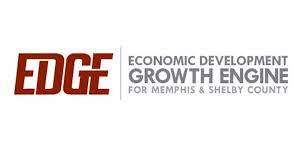From Atlantic Cities:
The big news in U.S. public transit this week was that Americans took 10.5 billion trips in 2012 — the second-highest number since 1957, according to the American Public Transportation Association. Ridership rose more than a point over last year’s figures on buses and subway systems, nearly 4.5 percent on light rail lines (though much of that from expansions), and about 1.5 percent across all transit modes. APTA announced that at least 16 local agencies set records.
Broadly speaking, the report is just the latest encouraging sign that U.S. metropolitan areas are moving toward the multi-modal transportation systems they need to thrive — especially with urban driving at or near (or even a bit past) its peak. In November, localities across the country once again showed a commitment to spend their own money on their own transit systems. We can debate whether U.S. transit ridership is growing enough considering all the resources going its way, but that’s a much better question to consider than why it isn’t growing at all.
Still it’s important to remember that, in certain places, this is still the question at hand. Mass transit ridership might have gone up across all modes, according to APTA’s statistics [PDF], but that’s not to say it went up across all cities. In a number of areas, on a number of transit types, the recent numbers are down.
Interestingly, there’s a close connection between metro areas that declined to pass funding measures tied specifically to transit last year and ridership declines. In Atlanta, which rejected a penny sales tax last summer, subway figures fell 5 percent and total transit 4 percent from 2011. In Memphis, which rejected a penny gas tax increase in November, general transit dropped more than a point and bus ridership slipped five points.
The same story goes for Pierce County, Washington, home to the city of Tacoma. The county voted down a sales tax increase of .3 percent at the ballot in November by the slightest of margins: 50.2 to 49.8 percent — reportedly a difference of 704 votes. The tax would have generated $28 million so Pierce Transit could restore service cuts made during the recession and avoid others expected to come this fall. Instead, in the aftermath of that defeat, Pierce Transit ridership was down 12 percent from 2011, according to APTA figures, and likely to fall farther.

“It’s not that people don’t want public transportation, they just don’t like sales taxes,” a spokesman for the agency told the McClatchy news service.
The link between failed ballot measures and falling ridership may not be causal — Los Angeles had a strong year despite the defeat of its transit referendum, though that was merely an extension of a previous successful initiative — but given the uncertain future of federal transportation funding it’s certainly notable. There is a fear, even among supporters of decentralization, that ending federal funding will ignite 50 separate fights over state gas taxes. The situation in Pierce, in particular, should serve as a reminder that decentralization would give rise to countless local tax debates as well.



